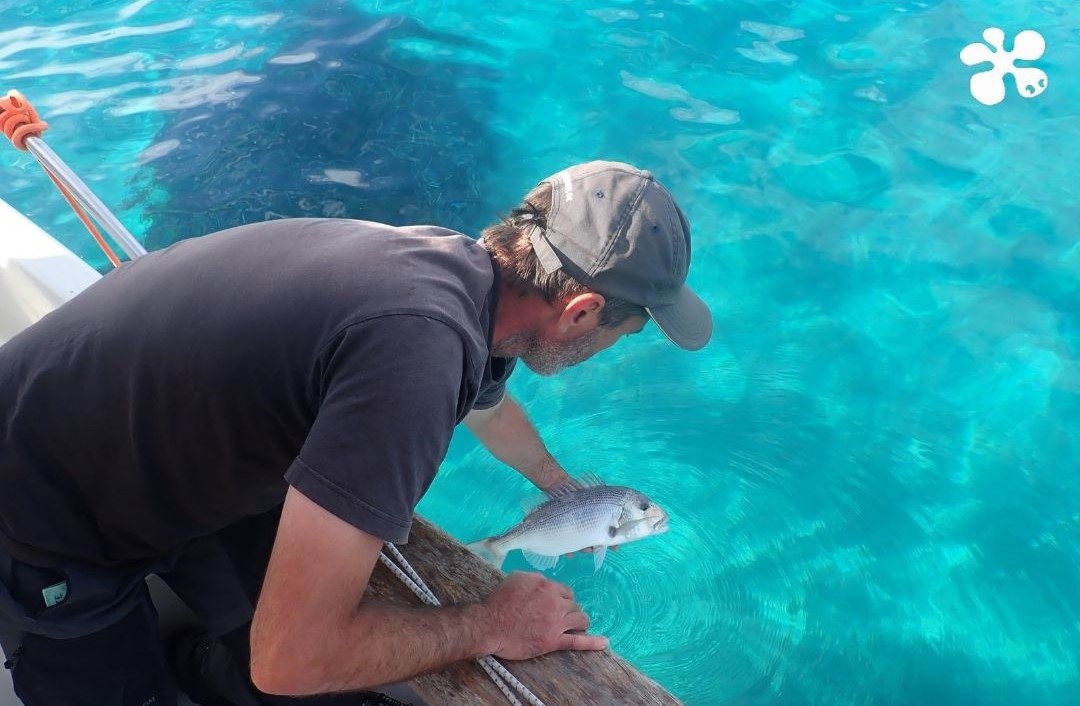RESMED: Marine reserves for the conservation of biodiversity
Climate change and direct anthropogenic disturbances pose significant threats to global biodiversity, leading to ecosystem collapse and the reorganization of ecological communities. A recent study conducted by a team of international researchers sheds light on the critical role of Marine Protected Areas (MPAs) in safeguarding reef fish communities in the face of climate warming. The participation at the research from Bernat Hereu MedRecover research group of the Institut de Recerca de la Biodiversitat de la Universitat de Barcelona (IRBio), it provides compelling evidence suggesting that MPAs increase resilience to marine heatwaves, thereby promoting stability in reef fish populations.
Assessing Marine Protected Areas
The research, encompassing data from 357 protected and 747 open sites worldwide, examined over 71,000 timeseries of population abundances for 2,269 reef fish species. Results indicated that MPAs mitigated the adverse effects of marine heatwaves on fish abundance and increasing the community stability. Moreover, the study revealed that networks of MPAs maintained persistent reef fish communities in warming oceans by fostering large populations and promoting stability across different levels of biological organization.
The necessity of promoting stability of reef fish communities under climate warming
The research emphasizes the importance of well-enforced MPAs in mitigating the impacts of marine heatwaves on marine biodiversity. MPAs, when properly designed and managed, serve as strategic tools in marine conservation, providing safe havens for marine life from human disturbances. Decades of research have demonstrated the benefits of MPAs in increasing biodiversity, abundance, and reproductive output of marine species.
Cross-border management
In the line of those results, and with the aim of preserving marine biodiversity and ecosystem services on the Pyrenean coast, Catalonia and France have joined forces in the RESMED+ project (Transboundary Marine Biodiversity Monitoring and Management Network), an initiative that seeks to improve the quality of ecosystems of the region.
The Pyrenean coast is home to a great diversity of species and habitats, essential for the socioeconomic activities of the region. However, current regulations have not been sufficient to prevent overexploitation and loss of biodiversity in the region.
Protection and conservation of marine biodiversity on the Pyrenean coast
The objective of RESMED+, a continuation of the RESMED, project, is to strengthen the MPA network of the area, and to implement conservation actions that cover essential habitats for the species identified in the previous project using acoustic telemetry techniques. In addition, the focus will be expanded to new areas, such as underwater canyons, seagrass beds, estuaries and lagoons, as well as anthropized habitats such as harbors and artificial reefs. The project aims to expand and consolidate the Catalan Tracking Network .
One of the distinctive features of the RESMED+ project is its regional and cross-border approach, involving all stakeholders, from local authorities to fishermen and divers. Joint meetings, training sessions and collaborative workshops will be held to identify needs, improve management and promote the sustainable use of marine resources.
The project aims to establish active and joint management of the natural heritage of the marine coast of POCTEFA (Spain-France-Andorra Territorial Cooperation Programme), promoting the conservation of biodiversity and the sustainable exploitation of its resources.
With concrete protection measures and broad community participation, RESMED+ is expected to benefit the local population, setting a precedent for the integrated management of marine ecosystems in the Pyrenean coastal region. The research carried out by Bernat Hereu and the Medrecover group underlines the critical importance of Marine Protected Areas (MPAs) in the conservation of marine biodiversity, particularly in relation to the protection of reef fish communities against the effects of climate change and other anthropogenic disturbances.
